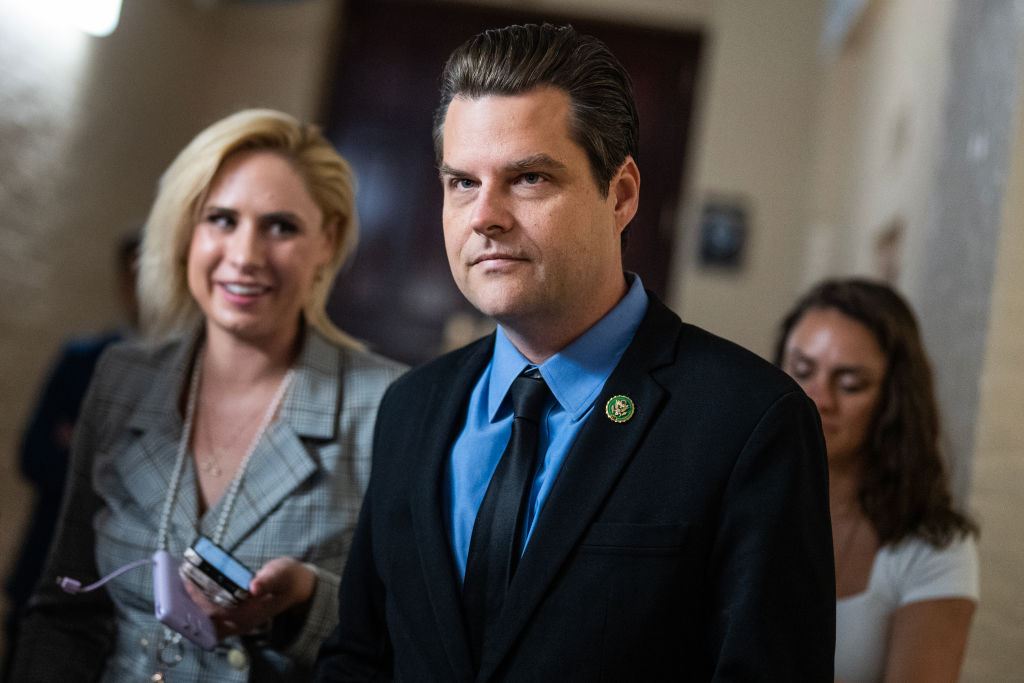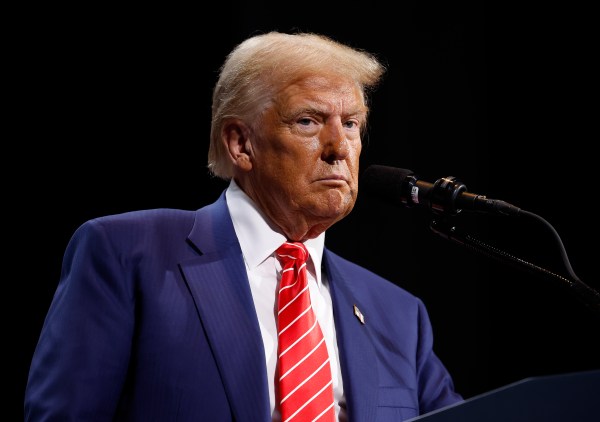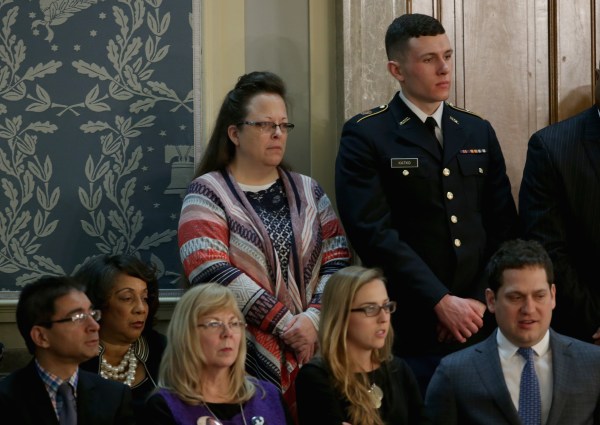As a federal budget economist, I typically analyze budget fights in the context of competing economic and fiscal approaches, and then define what I consider to be the optimal policy. However, the current government shutdown debate lacks any coherent policy explanation. Nor is it truly about fiscal or economic policy at all. It is purely political theater driven by a small handful of Republican House lawmakers who are being called out by their own colleagues for self-promotion and populist positioning.
Congressional Republicans claim that this fight is about reining in budget deficits that approach $2 trillion this year and are barreling toward $3 trillion a decade from now. Yet they propose no changes to the Social Security and Medicare shortfalls that are overwhelmingly driving projected deficits. Nor are they proposing significant reforms to other mandatory programs, defense, or veterans’ benefits. Instead, they are focusing entirely on a 10 percent sliver of spending known as non-defense, non-veterans discretionary spending. Yes, every spending cut counts, but even achieving the House objective of cutting this spending by 25 percent would merely reduce the deficit a decade from now from $3 trillion to $2.8 trillion. Lawmakers who are serious about deficits would also address the 90 percent of spending that is actually driving the red ink.
Similarly, Republicans seem to fight runaway spending only when a Democrat is in the White House. Back in 2017-2018, when Republicans controlled the House, Senate, and White House, they hiked discretionary spending by 13 percent in one year. Now Republicans want Democrats to agree to spending cuts that even the Republicans themselves refused to consider when they controlled the government.
Regardless of the spending targets, government shutdowns are a gimmick. If any of the 12 appropriations bills that fund discretionary spending are not enacted by the October 1 fiscal new year (and if no continuing resolution keeps the programs running while lawmakers continue negotiation), then some of those programs would shut down until the bills are enacted.
Over the past 30 years, Republicans have repeatedly tried and failed to use the threat of government shutdowns as leverage to enact spending cuts. (Democrats also induced a shutdown in 2018 in a failed attempt to force through immigration reforms.) In 1995, 2013, and 2019 it played out the same way. Roughly 8 percent of federal spending shut down, bringing a furious public backlash that eventually pressured Republicans to surrender and reopen the government, occasionally with help from Democratic lawmakers. Not only does the government shutdown ultimately save no money, but chastened Republicans have typically responded with multiyear spending sprees just to rehabilitate their reputation (after all, George W. Bush’s “compassionate conservatism” theme in 2000 was a direct repudiation of the Gingrich Congress’ government shutdown and attempts to slash popular social spending).
Let’s be real. Republicans are going to war against a sliver of federal spending that includes K-12 education, highways, health research, the FDA, food safety, housing vouchers, embassy security, disaster response, border security, the Coast Guard, federal prisons, pollution control, and national parks. The idea of completely shutting down these discretionary programs, or forcing cuts as large as 25 percent, is politically delusional. Which is why it has never succeeded.
Even the idea that House Republicans can use the shutdown as leverage against the rest of Congress and the White House has been disproven over time. During the spring debt limit debate, the House Republicans’ leverage was greater than today (the debt limit and its attendant risk of default is a much stronger hostage than a temporary shutdown of 8 percent of spending programs), and the lawmakers were even more united. And even then, they won just a two-year freeze of discretionary spending—which they are now trying to relitigate into deep cuts.
The strategy is flawed. Rather than aim for modest-but-achievable spending restraint, a group of conservatives demand an unrealistic package and then refuse to budge. This essentially removes them from the negotiating table, forcing Speaker Kevin McCarthy and the rest of the GOP to make a deal with Democrats. But those Democrats will not bail out Republican leaders for free, so the deal moves leftward to secure those votes. All when a more modest proposal could have united the GOP, won crucial public support, and backed Democrats into a corner—which is exactly how Republicans won the debt limit fight.
The most famous example is the 1990 budget negotiations, when—after President George H.W. Bush and congressional Democrats carefully negotiated a budget deal that avoided income tax hikes—misguided congressional Republicans revolted against the deal anyway. This forced Bush to break his “Read My Lips” pledge against income tax hikes in order to secure more Democratic votes. The more congressional Republicans take their votes out of play, the more congressional Democrats will end up shaping the final legislation.
The spending fight is just a MacGuffin.
Then again, asking whether shutting down the government can successfully reduce spending and deficits is the wrong question. Even GOP lawmakers have pointed out that cutting spending is not the actual goal here. The spending bills are just a MacGuffin—an otherwise unimportant object or device that exists only to give a story’s heroes and villains something to battle over. In this case, a small group of hardline Republicans is using the appropriations process as an excuse to burnish their populist credentials and attack GOP leadership.
Let’s roll the tape. Earlier this year, a group of House conservative hardliners demanded that all 12 appropriations bills be debated separately under regular order and include a $130 billion spending cut from last year’s levels. Republican leadership agreed, yet the hardliners blocked the bills anyway. Then, when those actions pushed the spending calendar to the deadline and necessitated a continuing resolution, the hardliners demanded spending cuts and immigration reforms—and then blocked that bill too. Now—like Lucy holding the football for Charlie Brown—they are demanding a return to the regular order that they had blocked earlier, even though it will now be impossible to finish those bills by the appropriations deadline.
This is not good-faith legislating. It’s not even logically coherent, unless the hardliners’ real purpose is simply to pick a fight with GOP leadership, even to the point of sabotaging their own stated policies. It is no secret that a lot of Republican voters despise their party’s congressional leadership, and this has incentivized a group of lawmakers to create conflicts that can portray themselves as populist rebels fighting the GOP establishment.
An exasperated New York Republican Rep. Mike Lawler lambasted his colleagues, telling reporters: “This is not conservative republicanism. This is stupidity. The idea that we’re going to shut the government down when we don’t control the Senate, we don’t control the White House. These people can’t define a win. They don’t know how to take yes for an answer. It’s a clown show. You keep running lunatics. You’re going to be in this position,”
And yet the hardliners are threatening to oust Speaker McCarthy for a situation that they created and have made unsolvable. Colorado Rep. Ken Buck—one of the hardliners—told Punchbowl News that “The thing that would force the motion to vacate [the position of House speaker] is if Kevin has to rely on Democrat votes to pass a CR. … I don’t think it has legs until Kevin relies on Democrats.” But then he added, “I don’t see how we can pass the bill [a CR] without Democrat votes.” As National Review’s Yuval Levin summarized, “Buck thinks the speaker should be thrown out unless he manages to do something Buck thinks is impossible.”
The longer the House slouches into government shutdown theater, the more it ultimately hands the appropriations process over to a Senate that is busy busting the spending caps. A House that focused on modest spending reductions and stripping out the Senate’s extraneous spending hikes could have united itself and likely succeeded. Instead, the House dysfunction will likely eventually force it to accept the bloated Senate spending bills.
Budget gimmicks over substance.
Government shutdown theater encapsulates the Republican Party’s overreliance on answering soaring budget deficits with performative theatrics. Budget deficits since 2016 have leaped from $585 billion to roughly $2 trillion, and are headed toward $3 trillion in a decade. Yet for all the complaints about “runaway spending” and Bidenomics, many of the loudest GOP critics have failed to produce any coherent proposal or strategy to rein in deficits.
Republican fiscal proposals consist overwhelmingly of extraordinarily ambitious savings targets with no policy blueprint to achieve them. They promise to balance the budget in 10 years while extending the 2017 tax cuts (which would require eliminating one-third of federal spending). Or pass the “Penny Plan” mandating that inflation-adjusted, per-capita spending fall by 25 percent over five years. Or slash in half non-defense discretionary spending as a share of the economy over the decade.
Yet when pressed specifically for which programs would be cut to meet these targets, many of the same lawmakers have no answer—just empty rhetoric about cutting waste, ending Ukraine aid, or running the government like a business. The only budget reforms that could possibly meet these ambitious deficit targets—aggressive Social Security and Medicare reform, defense cuts, and middle-class tax hikes—are explicitly taken off the table. Instead, the plans include vague promises, magic asterisks, gimmicks, and promises to magically double or triple economic growth and productivity.
Government shutdown theater, debt limit showdowns, balanced budget promises, and long-term discretionary spending caps that are immediately bypassed: These are contrivances and talking points, rather than substantive savings proposals that even a unified Republican government could draft and pass. And it is hard to take seriously the deficit concerns of lawmakers and presidential candidates who are still proposing trillions of dollars in new tax cuts.
The Republican fiscal strategy at this point consists heavily of “hold-my-breath-until-I turn-blue” government shutdowns, and generic spending targets that even Republicans could never implement. If your conservative deficit-reduction plan does not address Social Security, Medicare, and middle-class taxes—and also account for the political reality that any reforms will require bipartisan buy-in and thus include legitimate concessions to Democratic priorities—then you have no plan.
Bipartisanship is the only way to enact and politically survive painful deficit reforms. No, Republicans should not commit political suicide by running in 2024 on a plan to cut Social Security and Medicare. Instead, they should freeze discretionary spending, offer a more modest and achievable deficit-reduction path, and then begin educating the public and quietly reaching out to Democrats for a grand deal on deficits (after all, dozens of House and Senate Democrats are on the record supporting such negotiations through a member commission). Bipartisan negotiations are obviously an uphill battle that may take years to bear fruit, but they are more serious than gimmicky government shutdowns.
But first, Republicans must decide if deficit-reduction is a serious goal worthy of taking on challenging policy reforms, or just another empty talking point.







Please note that we at The Dispatch hold ourselves, our work, and our commenters to a higher standard than other places on the internet. We welcome comments that foster genuine debate or discussion—including comments critical of us or our work—but responses that include ad hominem attacks on fellow Dispatch members or are intended to stoke fear and anger may be moderated.
With your membership, you only have the ability to comment on The Morning Dispatch articles. Consider upgrading to join the conversation everywhere.